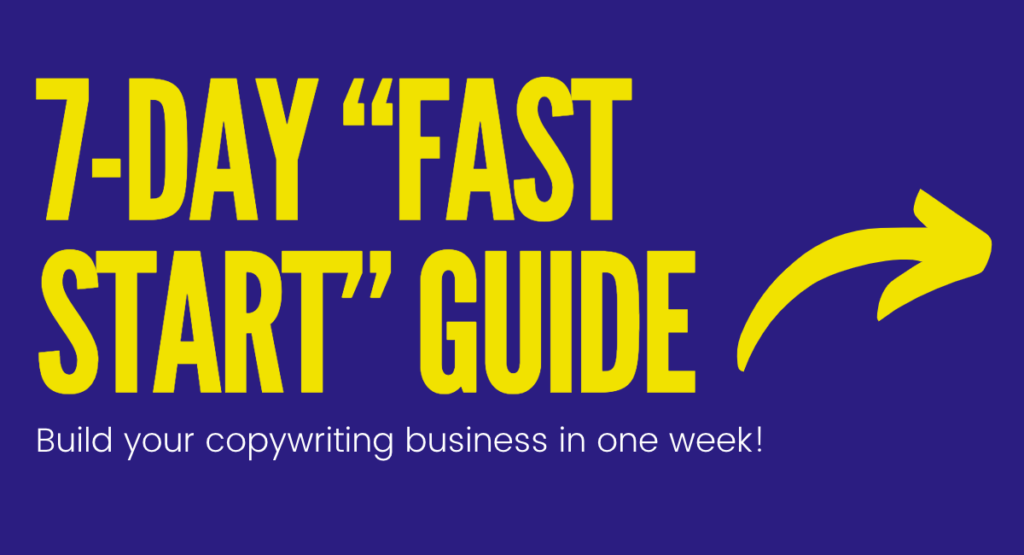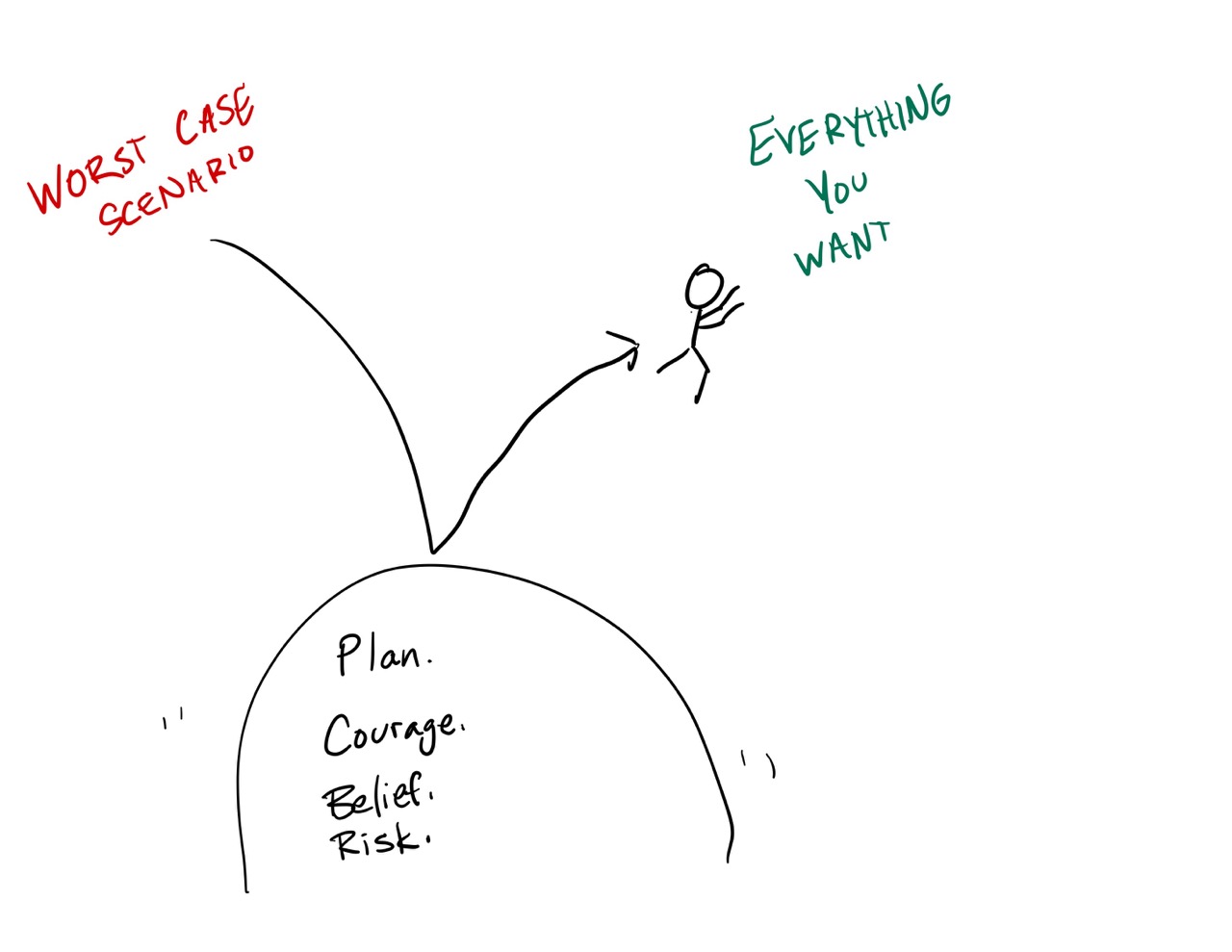I looked out the kitchen window to see my wife in the driver’s seat of our van, hunched over the steering wheel.
She was sobbing uncontrollably.
And it was all my fault.
That morning, she took our two boys to a large used clothing fair in hopes of getting a winter coat for our oldest. My business was failing and money was scarce. She was doing everything she could to keep our kids clothed properly.
While shopping, my son saw a Ninja Turtles t-shirt that he thought was cool. It cost $2.
Wanting to jump on the opportunity to do something nice for him, my wife snatched it up and took it to the register.
Now, before she left, she checked the bank account with me. We had $15 in the bank account. If she wanted to spend more than the little scraps of cash she had saved up, she had some wiggle room.
Well – and this is a 100% true story – in the 20ish minutes between checking the account and her going to the fair, another bill was deducted from the account.
It was now overdrawn.
So when she tried to buy the $2 t-shirt, the card declined.
Two dollars.
The cash she had needed to be used for the necessities. She didn’t even have any spare change she could cobble together.
To the protests of my 4-year old son who didn’t understand what was going on, my wife had to put the t-shirt back.
He was upset. And she had to face the people around her, including the cashier, who could all see that she couldn’t afford even $2.
The shame nearly snapped her in two.
When she finally came inside from the van, her eyes bloodshot and her face puffy from crying, all I could do was hold her and tell her I was sorry that happened.
I couldn’t do anything else for her.
I was ashamed, too.
I told her to quit her job and let me be the breadwinner so that she could raise our kids.
I told her to put the pressure on me and I would provide.
And as I stared down a pile of past due bills, lawsuits from credit card companies, endless debt collection phone calls, a bank account that spent more time in the black than the red, an embarrassed wife, and a heartbroken little boy…
…I had to admit to myself that I wasn’t doing my duty as the man of the household.
I was waist deep in my Worst Case Scenario.
The Moment That Terrifies Us All
“The taste for worst-case scenarios reflects the need to master fear of what is felt to be uncontrollable.” – Susan Sontag
Over the past year, I’ve spoken with hundreds of people who aspire to be freelance copywriters.
But yeah, it costs money.
And when it comes time to pull that trigger, writers give me all sorts of excuses.
- “I have a wife and kids. It’s a little risky for me!”
- “You don’t guarantee your results. I can’t do this if I’m not guaranteed success.”
- “I’m just waiting on [insert some bogus life event here] so that I can pursue this. I’ll get back to you!”
You know the percentage of these writers who come back and buy?
Zero.
Because they are too busy focusing on the Worst Case Scenario.
I don’t blame them. It’s painful.
When everything collapses around you and you don’t see a way out, can be scary.
In fact, it may be the scariest time you’ll ever experience in your life short of major disease or death.
Here’s the problem, though: if you spend your time focused on the Worst Case Scenario, you’ll never pursue anything. Ever.
This line of thinking cripples your ability to move forward.
So why, then, did I lead with a Worst Case Scenario story? If I want you thinking more positively, why wouldn’t I tell stories about buying my dream house or taking my family to Disney World?
Because I’m trying to show you that you can recover from your Worst Case Scenario… and it doesn’t need to destroy your life.
That story happened in 2018.
Today, in 2023, I live in a 6,000-square foot house on 4+ acres of land.
Just 5 short years ago, I couldn’t afford a used t-shirt.
I didn’t let the Worst Case Scenario destroy me. I faced it head-on and beat it.
Today, you’re going to do the same.
Why?
Because facing it is the only way you’re going to find the success that you’re yearning for.
The only way. No exceptions.
So let’s do it.
8 Ways to Face – and Overcome – Your Worst Case Scenario
1. Understand that you are not in control of everything.
One of the core issues with your fear of the Worst Case Scenario is your belief that, somehow, you can control it.
There are plenty of things in life that you can control. And you absolutely should focus on optimizing those.
But typically, the Worst Case Scenario hits in ways you can’t control.
Or, even if it’s avoidable, it ramps up to a point where it’s out of your control.
There is great power in admitting to yourself, “There’s nothing I can do about that.”
When debt collectors are calling you at all hours of the day or night, there’s nothing you can do to stop them.
So I resolved to just not answer my phone if it was an unknown number. No sense in stressing about trying to make it stop.
2. Accept that the Worst Case Scenario will happen at some point.
There’s a great episode of Scrubs (a show that is routinely ignored by “Best” lists, don’t @ me) where everyone at the hospital talks about their first “kill” – the first patient that died as a direct result of a mistake that they made.
Everyone had at least one (my favorite being bumbling Doug who admitted his first kill was “40 minutes into [his] first day”).
When J.D. can’t think of one, his mentor Dr. Cox explains that everyone makes mistakes that kill patients. He then says, “Ask yourself – do you really think you’re THAT good?”
He’s making a point: we ALL experience Worst Case Scenarios.
They are a universal part of life.
Your fear of it doesn’t reduce your risk.
Your attempt to avoid it won’t reduce your risk.
You just have to be as prepared as possible to weather the storm – because no one is immune to it.
3. Have a ready response.
This is the toughest tip on the list.
Not because it’s hard to have a response available.
It’s because everybody gets hung up on this making this step “perfect” and “enough” that they don’t make the leap.
You know what my contingency plan has always been?
“I can always deliver pizzas at night.”
I’ve never gone to deliver pizzas, but at various points in my career, I’ve grabbed a random job somewhere just to get the bills paid.
In 2010, that was answering emails in a customer service job.
In 2009 and 2016, it was bartending.
Look at the economy today. Literally everybody is hiring.
“But look at the layoffs!” No, those are for careers.
I’m talking about JOBS. Places you go just to get a paycheck.
Every retail store is hiring. Every restaurant is hiring.
If everything collapses, you can go tend bar for a few months or wait tables for a few nights a week.
It ain’t comfortable (we’ll get to that), but it’s doable. I was a bartender for 6 months at the end of 2016 and into early 2017. It was demeaning, degrading, and embarrassing. It broke my heart to leave my pregnant wife and 2-year old son at night.
But it got us through the rough patch we were in.
There is always a fallback plan that you can kick to when times get tough. And it doesn’t require you to give up on what you’re pursuing.
4. Be prepared to humble yourself.
In 2014, I made $140,000. I was being flown on all-expense-paid business trips all over the country. I sipped $16 glasses of scotch and ate fine steaks with clients.
In 2016, I spent Tuesday afternoons on my hands and knees polishing the rail under a bar where people rested their boot-covered feet. An insecure man-child of a boss screamed at me for perceived personal slights and disrespected me in front of patrons.
Chasing something meaningful can put you in a position where you have to swallow your pride.
It’s temporary. And required.
5. Write your way through the “What ifs?”
If you haven’t hit your Worst Case Scenario yet, the best way to handle your fear of it is by writing through your “What ifs”.
This is a great exercise where you realize that your Worst Case Scenarios aren’t that scary.
“What if I don’t make enough money to cover my bills?”
I’ll have to scale back spending.
“What if I can’t scale back spending anymore?”
I’ll have to get a part-time job at night.
“What if nobody is hiring?”
There’s always somebody hiring.
“What if I don’t make enough at that job?”
If I am making a few bucks during the day, the part-time job just has to cover the shortage.
“What if I can’t cover the shortage?”
Then I will stop paying my credit card bills.
“What if it destroys my credit?”
My credit doesn’t matter right now. I’m just focused on survival.
…and so on.
Look, these scenarios suck. But at the end of the day, you have options… even if they are unpleasant.
6. Understand that you can recover from ANYTHING.
I wasn’t making up that credit card thing.
In 2018, at our lowest, we stopped paying our credit card bills.
Our credit score tanked by hundreds of points.
A couple of them sued us.
We negotiated settlements with the rest.
It was the worst thing you could do, right?
But think about it: we weren’t buying a house at the time, we just had to put food on the table. Who cares about your credit score when you can’t survive?
We sacrificed our credit score.
In January 2023, when we were ready to buy a house, we were able to take out a mortgage that was twice as big as we ever expected to pay on a property.
Nobody denied us anything. It was smooth sailing all the way.
Our credit score is over 700 now, and going up.
Only death is irreversible. Everything else is on the table.
7. Embrace discomfort.
Not paying bills is uncomfortable.
Not knowing if you can afford food is uncomfortable.
Keeping your heads afloat by selling random household items for $5 apiece on Facebook Marketplace is uncomfortable.
But you aren’t pursuing your own business and your own career to be comfortable, are you?
You’re doing it because it puts you in the driver’s seat… it removes the ceiling from your income… it hands you freedom that you can’t get at a 9-to-5.
I am NEVER comfortable.
Even now, when I’m making $20,000+/month, I’m still dealing with uncomfortable weeks when things feel a little sideways.
It’s the game.
If you want to be comfortable all the time, get out. That’s not the freelancing life.
8. Refuse to quit. Bet on yourself.
My brother has always dabbled in different businesses.
He’s a smart guy, very tech-savvy, and could do well. He never made it work.
While visiting him and his family last June, I told him about our excitement over the launch of my copywriting program a couple weeks prior.
He admitted, “See, you’re making it because you don’t quit. Every time things get hard, I freak out and I quit. So I never get anywhere. You’re doing it right.”
He has a fine job for a company, but he always wanted to run his own thing.
But he couldn’t fully bet on himself.
When people ask me to guarantee the results from my program in X months, I tell them flat out: I don’t guarantee timelines.
I guarantee that the stuff I’m teaching will work. It’ll get you to $2,000-$5,000/month.
But I can’t say WHEN.
That’s on you.
How hard will you work?
How consistent will you be?
And most importantly, how will you react when things DON’T work right away?
This stuff only fails if you quit.
It might take you a year. It might take you 10 years.
But as long as you refuse to quit, you’ll find a way through and you’ll make it.
Discomfort is Inevitable in Anything
You’re going to feel pain.
You’re going to feel desperation.
You’re going to feel discomfort.
It doesn’t matter whether you stay in your “safe” 9-to-5 or you drop everything to try to work for yourself.
It doesn’t matter if you stay single or you have a spouse and kids to provide for.
You will have painful times and Worst Case Scenarios.
You just have to ask yourself: what am I doing when those times hit?
Am I sitting around wishing I was pursuing something else?
Or am I weathering a storm because I’m in the game trying to build something that I truly want?
It’s your call.
Pain hits either way.
You might as well do something great with it.

Lay the groundwork for your copywriting business in just one week of work. In this free guide, I hand you all the basics to get you started fast. No catch – just the cheat sheet.

Want a profitable, sustainable copywriting career? Tap into my 15+ years of copywriting experience and build a $3,000-$10,000/month income.


